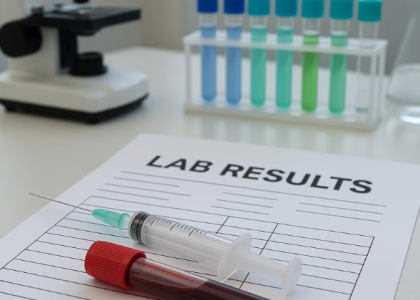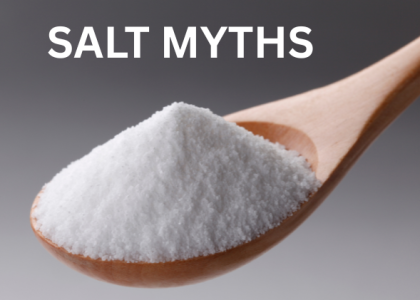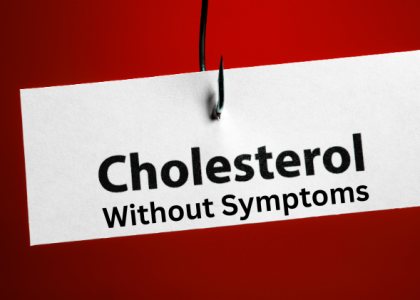The Question We All Ask
“My cholesterol is normal, so I’m safe from heart problems, right?”
If you’ve ever asked this question after a checkup, you’re not alone. Getting that “normal” result feels like passing an important health exam. It’s reassuring to see those numbers in the healthy range.
But for many South Asians, normal cholesterol might not tell the whole story.
The Surprising Truth
Many people with perfect cholesterol numbers still have heart attacks. In fact, studies show that about half of all people who have heart attacks have “normal” cholesterol levels.
This is especially important for South Asians to understand. Our community has higher rates of heart disease that often appears at younger ages than in other populations.
Meet Vikram
Vikram, a 48-year-old software engineer, had normal cholesterol at his yearly checkup. He ate vegetarian food, wasn’t overweight, and played cricket on weekends.
“I thought I was doing everything right,” he says. “My doctor always told me my cholesterol was perfect.”
Yet Vikram ended up in the emergency room with chest pain. Tests showed he had significant blockage in his heart arteries. How could this happen with normal cholesterol?
Beyond Traditional Cholesterol Tests
Traditional cholesterol tests measure:
- Total cholesterol
- LDL (bad) cholesterol
- HDL (good) cholesterol
- Triglycerides
While these are important, they don’t show the whole picture. Think of it like checking only the temperature outside without looking at whether it’s raining or windy.
Here are three important heart tests many South Asians have never heard of:
1. ApoB Test
ApoB measures the number of potentially harmful particles in your blood, not just the amount of cholesterol they carry.
Simple explanation: Imagine your bloodstream as a highway. LDL cholesterol tells you how much cargo is being transported. ApoB tells you how many trucks are carrying that cargo. It turns out that having too many trucks (even small ones) can cause more traffic problems than a few big trucks.
Many South Asians have a pattern of many small, dense cholesterol particles that don’t show up as abnormal on traditional tests.
2. Lp(a) Test – “Lipoprotein little a”
Lp(a) is largely determined by your genes. It’s like a special type of cholesterol particle that’s stickier and more likely to cause blockages.
Simple explanation: If cholesterol is like fat floating in your bloodstream, Lp(a) is like sticky fat that more easily attaches to your artery walls.
About 1 in 4 South Asians have high Lp(a) levels. It doesn’t show up on regular cholesterol tests, and doesn’t change much with diet or exercise.
3. Calcium Score Test
This isn’t a blood test, but a special CT scan that looks for early buildup in heart arteries before you have any symptoms.
Simple explanation: While blood tests tell you about risk factors, a Calcium Score is like taking a photo of your heart arteries to see if buildup has already started.
Meet Priya
Priya, 52, has a family history of heart problems. Her father had a heart attack at 55.
“My cholesterol was always normal, so I thought I was different from my father,” she says. “But my doctor suggested these additional tests because of my South Asian background.”
Her ApoB and Lp(a) tests showed high levels that her regular cholesterol test missed. With this knowledge, she made targeted lifestyle changes and started appropriate medication.
“I’m grateful I found out before having a heart attack,” Priya says. “These tests might have saved my life.”
Why Are South Asians Different?
Research shows that South Asians often have:
- Different patterns of where fat is stored in the body
- Higher rates of insulin resistance
- Potentially different cholesterol particle types
- Genetic factors that affect heart risk
These differences mean that normal cholesterol results may not be as reassuring for South Asians as they are for other groups.
What Can You Do?
- Talk to your doctor about these tests
Simple question: “I’m South Asian and concerned about heart risk. Can we check my ApoB, Lp(a), and consider a Calcium Score test?” - Know your family history
Heart problems in relatives before age 60 is important information to share with your doctor. - Don’t rely solely on “normal” cholesterol
It’s one piece of a larger puzzle. - Take prevention seriously
Even with normal results, South Asians benefit from heart-healthy habits.
The Bottom Line
A normal cholesterol test is good news. But for complete heart protection, especially for South Asians, these additional tests provide a more complete picture.
Knowledge is power. Understanding your true heart risk allows you to take the right steps for protection. After all, your heart works hard for you every day—it deserves the most complete care you can give it.
Have you had any of these advanced heart tests? Share your experience in the comments below!




